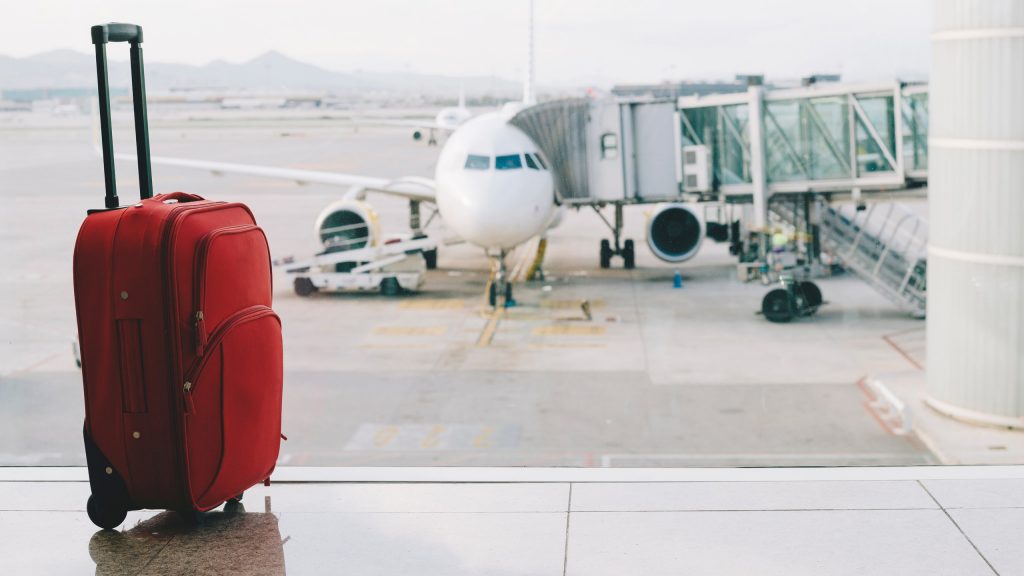
Coronavirus isn’t the only thing killing the aviation industry
Eighteen years ago, September 11th caused a three-day halt of the US commercial airlines and resulted in a 31.6% reduction in travel in September 2001 compared to the previous year. Think about it. Three days.
On March 11th this year, President Trump issued a 30 day travel ban to Europe, effectively grounding the aviation industry’s international flights. Now think about that. Thirty days!
The last time planes were grounded (for three days) it took six years for the industry to achieve profitability. On June 8th, 2017 Business Insider published the article “Airline stocks have finally recovered all their losses since September 11, 2001” You do the math for how bad it could be this time around, unless the airline industry gets help. Yet, our newsfeeds are full of articles and opinion pieces that express animosity, lack of support, and, in some cases, hatred towards airlines. The titles of some of these articles alone are heartbreaking.
Let’s look at the reality, though. Real people make up the airline industry. And, at every level, from baggage handlers to CEOs, they commit to customers every day, in an industry that operates with tight margins and unique complexities.
Laser Thin Margin
One of the things I love most about having The Petrova Experience is that, now, I get to solve business problems across industries. One day, I talk about specialty food grocery. The next day, about healthcare innovation technology, luxury retail, and furniture rentals.
When I was in JetBlue, I understood that the aviation industry has low margins. However, what I did not know, was just how big the gap is between the aviation industry and the rest of the S&P 500. In the airline business, getting to 25% margin is a great success. Just in the past week, I learned that a grocery store can reach as high as 50% margins on fresh produce, while luxury retail can see up to 400%.
So, what does margin mean in times like this? It means that there is not much cash on the balance sheet to help get through tough times. It also means you are constantly under pressure. And every penny counts. Tight margins mean that, if an airline waives all the change fees, it may not survive this month.
Last but not least, margins like this mean that, when you are charging a lot of money around Christmas or New Year, it is not because you are gouging the market. Rather, it is because you are getting a break to collect some cash so when the kids are back to school and your flights are empty, you can continue to fly. And to serve the public.
Service In Spite of Struggle
“Don’t Give the Airlines What They Want.” That is the title of a VICE article a friend sent me this week. It broke my heart. I have never seen any more hospitable and dedicated industry than the aviation industry. We are aviators, we are zealots, we are public servants. We are always working.
You can find aviators in the field on holidays, during severe weather events, and in risky times. We bravely face terrorist attacks, solve complex, almost unsolvable operational problems, and love our passengers with all our hearts. Yet, this month it feels like aviators are the most hated people in the world.
I do not remember seeing many article titles like this in 2008 during the financial crisis. So, why is this happening? In part, it could be because the aviation industry is one of the most customer-facing industries. Airport employees are passengers’ temporary hosts. Similarly, when you are in the air, flight attendants welcome you into their home. They serve you with care and with passion. The thing about visibility is that it goes both ways. When you are vulnerable, you are bound to show your ugly side more often, too. The complexity of aviation drives more “uncontrollables” than most other industries. In return, this can drive more bad experiences for customers, however unavoidable those experiences may be.
But. let’s take a closer look at the inside of the aviation industry to understand why some of the prevailing winds of anger are so at odds with the reality lived by the individuals who work in the industry. And why an industry dedicated to service is taking a turn at needing some support.
“You will Never Get Rich Working for the Aviation Industry”
One of the first things I was told at my JetBlue interview in 2011 was that I will never make the money I could in banking, the industry I was coming from. Aviators have “the bug,” they said. They work for the people, not for the money.
The husband of a friend of mine manages one of the NY airports. He wakes up in the middle of the night to go to the operation. He picks up the phone at all hours. And he loves every minute of it. Is he doing this for the money? No. He is doing it for the mission to serve the public. This man is a public servant. In my book ,that is the essence of service.
The interviewer turned out to be right. I served my time, 7 and-a-half years, to be exact. And during that time, I did not exactly get rich. I remember going to my MBA reunions listening to classmates’ career trajectories. They were easily earning double what I was making. But I was twice as happy as they were. I loved the service.
People do not talk about this. Once, I even got in trouble for saying it to a college group visiting our offices. But today, it feels more than appropriate to share. Remember that person that made you happy. The one that really took care of you on your trip. Remember the bag handlers that unloaded your bags from an airplane in the middle of a storm, or the airport employee working hard to make more airlines fly to your city so you can get to see more places in the world. These are the people who are asking for help today.
So, hopefully, the next time someone says in your presence that the aviation industry does not deserve our support, you will defend your travel hosts and express your gratitude for having the ability to go everywhere you would like in the world. Because you know that, even while we are grounded, we are all planning for a brighter, more accessible future. We never stop serving our customers And we never stop striving for their happiness.
This article originally appeared on The Petrova Experience Blog.





